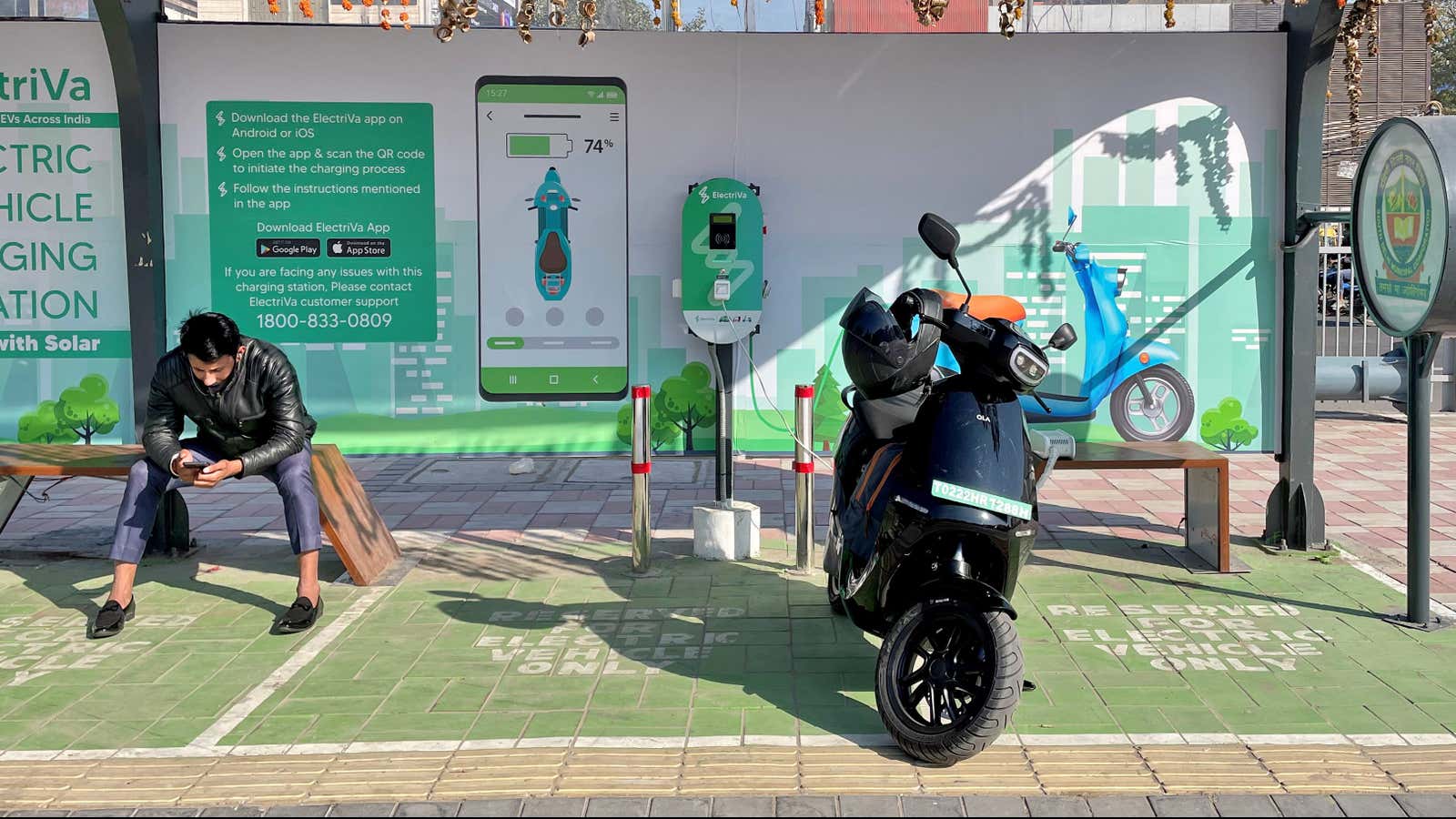These surely aren’t the best of days for India’s electric vehicles (EV) sector.
In only four days of March, at least four electric two-wheelers caught fire in various cities, with two persons losing their lives. The latest incident involved an e-scooter in Chennai manufactured by Pure, which has a significant presence in other South Asian nations such as Nepal and Bhutan, too.
The Narendra Modi government is probing the matter, but worrying murmurs abound. Potential EV customers are pulling back their plans to wait and watch.
“I have been planning to invest in an EV scooter, have been following various reviews of the newly-launched Ola Electric too but now after these incidents, I don’t know. I might wait or rather buy the good old petrol vehicle,” Raunak Verma, a 30-year-old entrepreneur from Uttar Pradesh’s Noida, told Quartz.
EVs constitute a mere 1% of the total vehicles sales in India, but their share is rising. The figure for 2022 is expected to touch a million, equivalent to what was sold in the past 15 years, according to the Society of Manufacturers of Electric Vehicles, a body of Indian EV and EV component makers.
Why EV scooters are catching fire?
In Tamil Nadu, a 45-year old man and his daughter lost their lives after an Okinawa scooter caught fire on March 24 after being left on charge overnight. A company statement said it was “investigating” the matter. It was an “evident case of short circuit due to negligence in charging the vehicle,” it said.
On March 26, a parked Ola Electric S1 Pro scooter caught fire near Pune. CEO Bhavish Agarwal’s reaction wasn’t any different.
A day later, another Okinawa scooter reportedly caught fire in Tamil Nadu’s Tiruchirappalli district. The company hasn’t said anything about it so far.
Growing anxieties around EVs in India
These unfortunate incidents could potentially throw India’s incipient EV revolution off track.
The sector, in any case, has been hobbled by safety concerns and range anxiety, despite the growing number of charging stations. EV owners also face resistance from housing societies over setting up charging stations.
Experts, however, perceive some degree of exaggeration and irrational fear among customers.
“The reports are unfortunate, but not something that can derail the momentum,” said Rohit Sharma, director of engineering at a product design firm, JD Concord Design Solution, emphasising that EVs are safe.
“The National Transportation Safety Board recently released a study that reaffirmed what has been said many times before. There are an average of 3,475 hybrid fires, 1,530 gas-car fires, and 25 EV fires per 100,000 vehicles sold,” he said.
